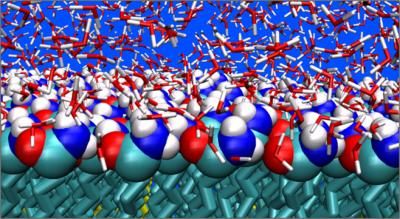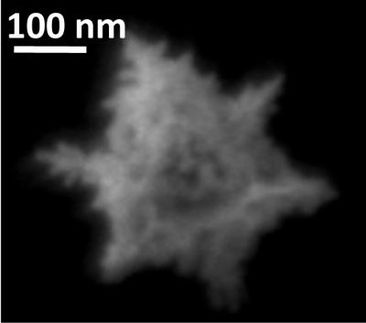Queen's scientists discover eco-friendly wood dissolution
Scientists at Queen's University Belfast have discovered a new eco-friendly way of dissolving wood using ionic liquids that may help its transformation into popular products such as bio fuels, textiles, clothes and paper.
Dr Héctor Rodríguez and Professor Robin Rogers from the University's School of Chemistry and Chemical Engineering worked along with The University of Alabama, Tuscaloosa, AL, to come up with a more cost and energy efficient way of processing wood.
Their solution, which is reported in the journal Green Chemistry, may see a new sustainable future for industry based on bio-renewable resources.
At present wood is broken down mainly by the Kraft pulping process, which originates from the 19th century and uses a wasteful technology relying on polluting chemicals.
The key reason for tolerating this method is that it is very difficult to break down and separate the different elements of wood. Until now any alternatives to the process have presented similar problems.
The Queen's researchers found that chips of both softwood and hardwood dissolved completely in ionic liquid and only mild conditions of temperature and pressure were needed. By controlled addition of water and a water-acetone mixture, the dissolved wood was partially separated into a cellulose-rich material and pure lignin.
This process is much more environmentally-friendly than the current method as it uses less heat and pressure and produces very low toxicity while remaining biodegradable.
Professor Robin Rogers said: "This is a very important discovery because cellulose and lignin have a wide variety of uses. Cellulose can be used to make products such as paper, biofuels, cotton and linen, as well as many other commodity materials and chemicals.
"Lignin can be used to create performance additives in various applications, such as strengthening cars and airplanes with a fraction of the weight of conventional reinforcement materials. It is also a source of other chemicals which are mainly obtained from petroleum-based resources."
Dr Héctor Rodríguez said: "The discovery is a significant step towards the development of the biorefinery concept, where biomass is transformed to produce a wide variety of chemicals. Eventually, this may open a door to a truly sustainable chemical industry based on bio-renewable resources."
The approaches that the scientists are considering for the future include the addition of eco-friendly additives to the ionic liquid system or the use of catalysts.
The researchers are hoping to eventually achieve better dissolution under even softer conditions and are also trying to achieve complete separation of the different elements in one single step.
Both teams are also focusing on biomasses which are rich in essential oils and can later be used in processes such as the manufacture of fragrances.
Most read news
Topics
Organizations
Other news from the department science

Get the analytics and lab tech industry in your inbox
By submitting this form you agree that LUMITOS AG will send you the newsletter(s) selected above by email. Your data will not be passed on to third parties. Your data will be stored and processed in accordance with our data protection regulations. LUMITOS may contact you by email for the purpose of advertising or market and opinion surveys. You can revoke your consent at any time without giving reasons to LUMITOS AG, Ernst-Augustin-Str. 2, 12489 Berlin, Germany or by e-mail at revoke@lumitos.com with effect for the future. In addition, each email contains a link to unsubscribe from the corresponding newsletter.






















































